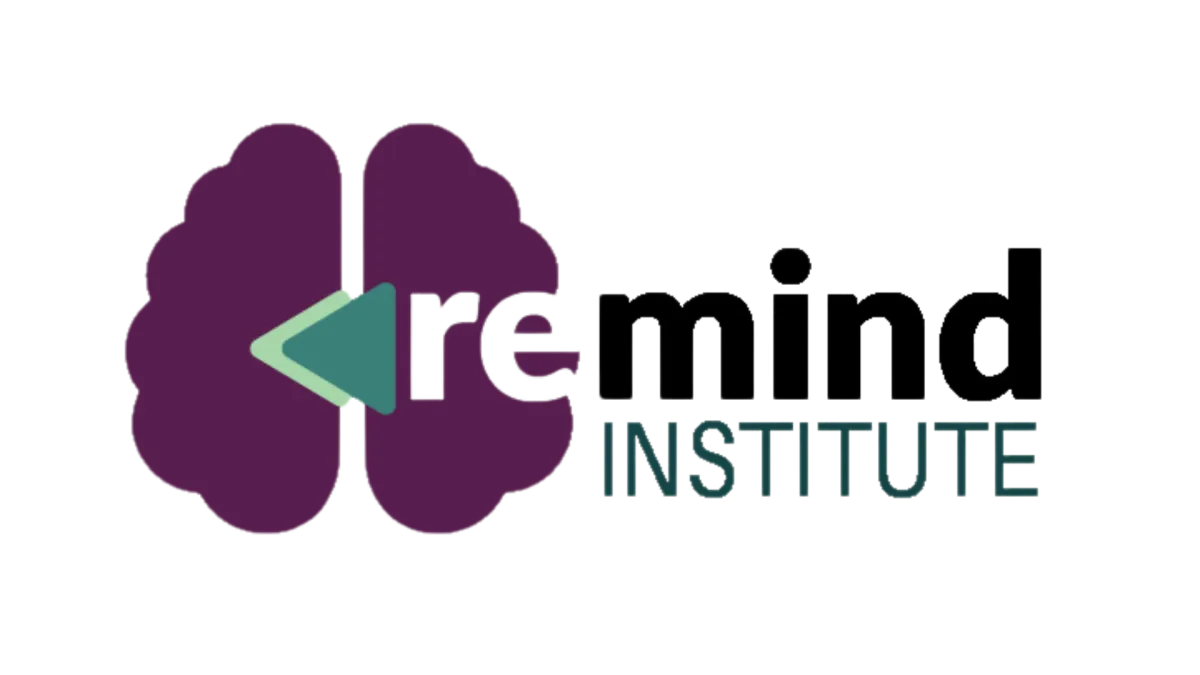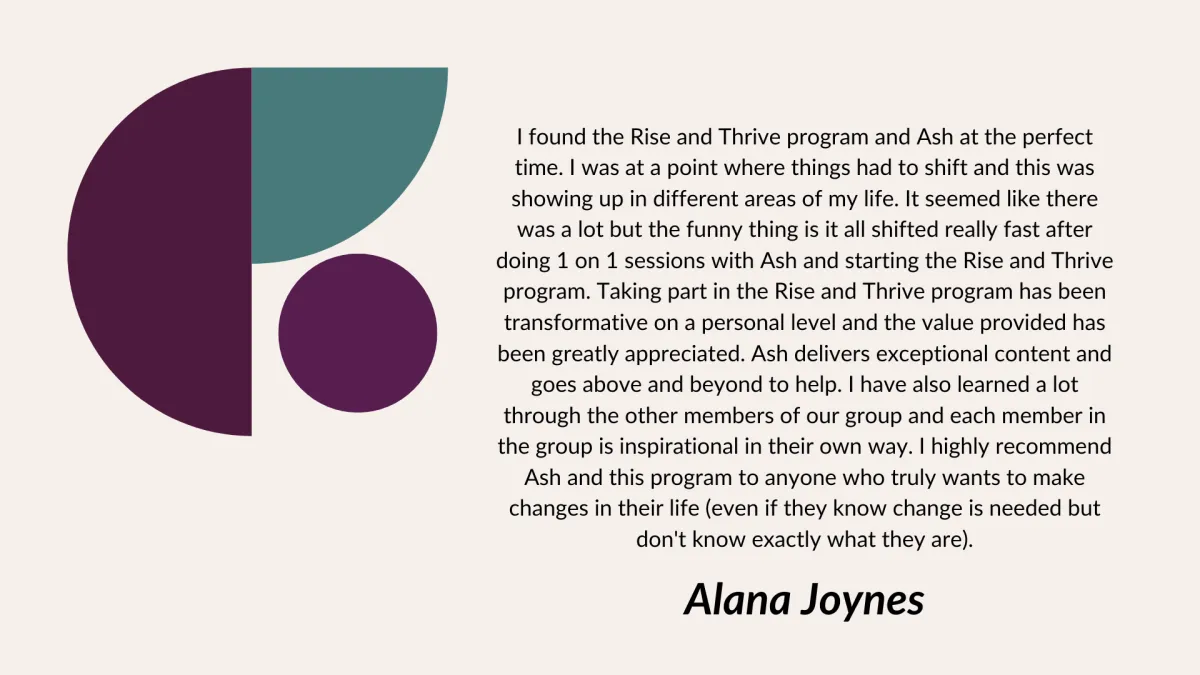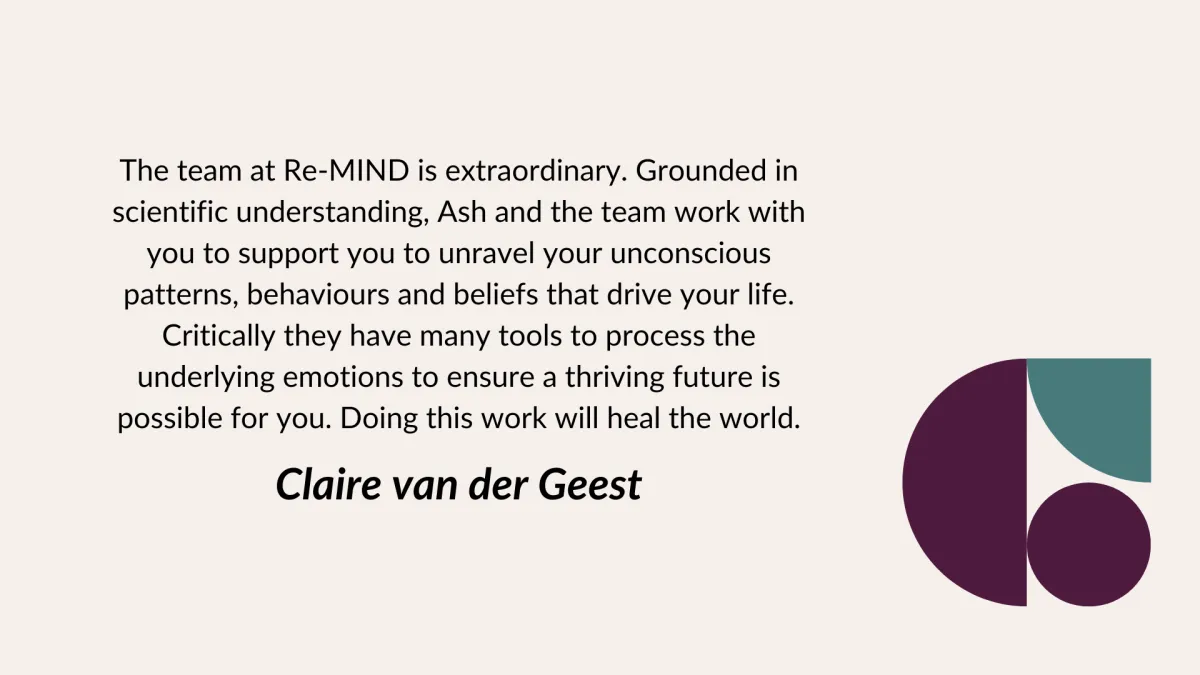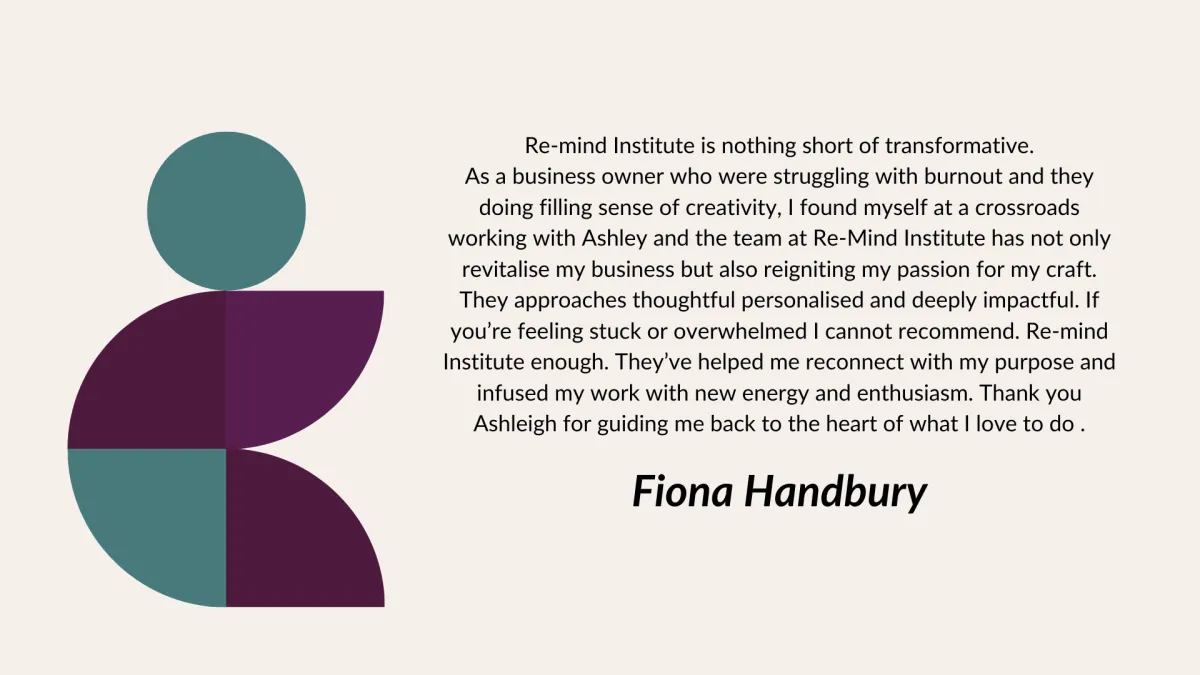Life Is For Thriving
Not Just Surviving
We help you renew your mind and rewire your nervous system
so you can show up the way you want - in parenting, relationships, work and life.
Life Is For Thriving
Not Just Surviving
We help you renew your mind and rewire your nervous system
so you can show up the way you want - in parenting, relationships, work and life.
What we do
At Re-MIND Institute, we help you shift what’s underneath the surface - behaviour, emotion, and nervous system patterns - so you can live, lead, and relate with yourself and others from a place of clarity, connection and purpose.

Step 1: Awareness & Revelation
Identify the patterns running your life on autopilot, and uncover their deeper roots.
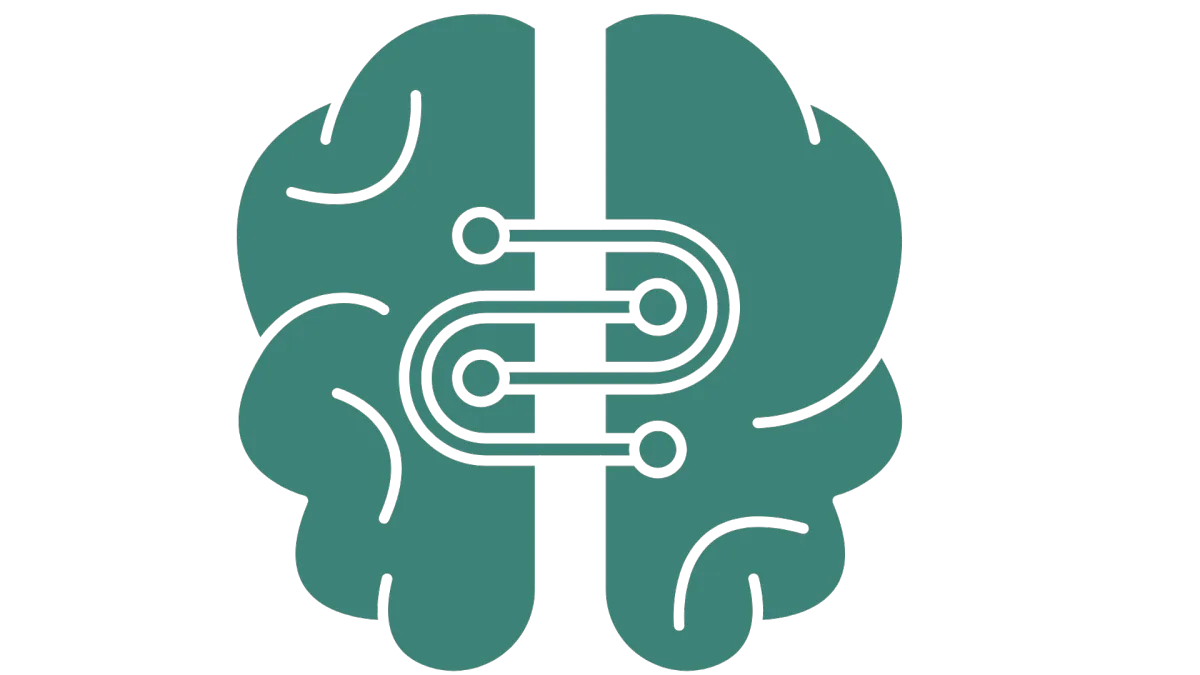
Step 2: Nervous System Rewiring
Shift from reactivity to regulation with science-backed nervous system work.
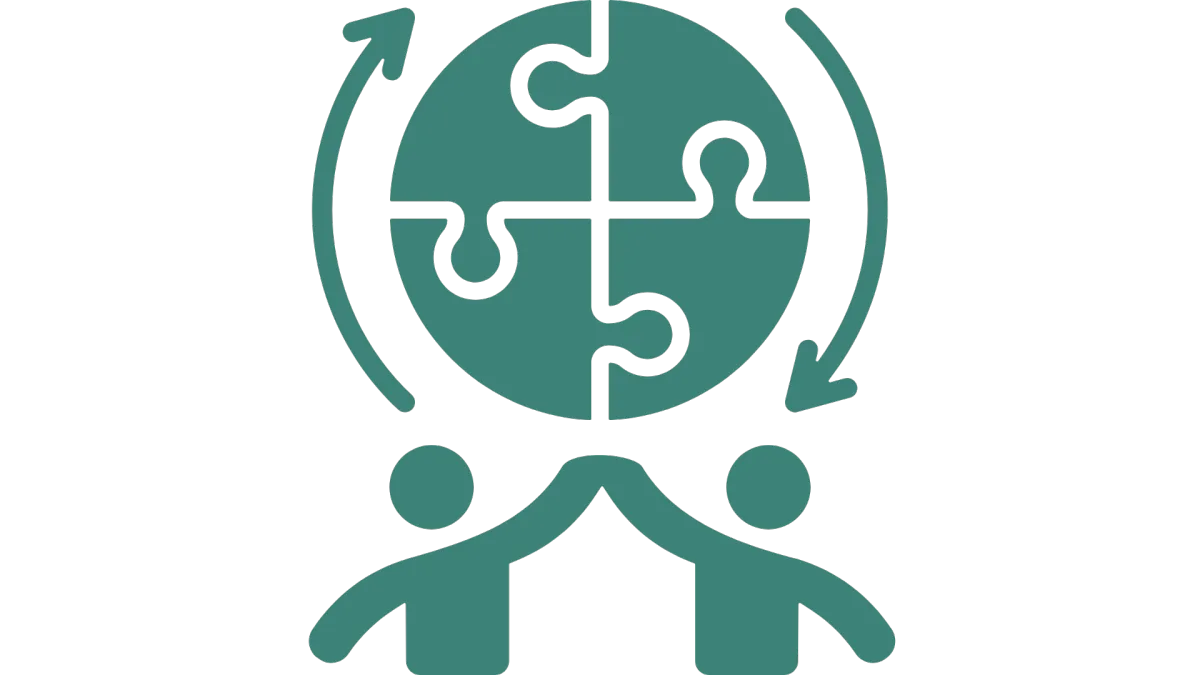
Step 3: Emotional & Behavioural Integration
Apply practical tools to change how you show up at home, at work, and with yourself.
You don’t have to do this alone. We're here to guide you,
every step of the way.
How we're different
At Re-MIND Institute, we’re not just about education - we’re about transformation.
Most people (and approaches) try to achieve change by thinking differently or managing behaviour.
We start where change actually happens: your brain, body, and beliefs.
Our approach combines neuroscience, emotional intelligence, behaviour change, and deep heart-led support.
Grounded in neuroscience
Trauma-aware and nervous-system informed
Practical and relational
Built for real life, not just theory

Healing doesn’t just change you - it changes generations to come.

How we're different
At Re-MIND Institute, we’re not just about education - we’re about transformation.
Most people (and approaches) try to achieve change by thinking differently or managing behaviour.
We start where change actually happens: your brain, body, and beliefs.
Our approach combines neuroscience, emotional intelligence, behaviour change, and deep heart-led support.
Grounded in neuroscience
Trauma-aware and nervous-system informed
Practical and relational
Built for real life, not just theory
Healing doesn’t just change you - it changes generations to come.
What people say
Every breakthrough creates ripple effects that transforms lives.
Read the experiences of those who chose to shift, heal, and thrive.
What people say
Every breakthrough creates ripple effects that transforms lives.
Read the experiences of those who chose to shift, heal, and thrive.
Personal Support Pillars
Because how YOU feel shapes everything else.



Parenting
Mental Health
Relationships
Parenting doesn’t come with a manual, but we’ll help you make sense of your child’s behaviour, manage your own reactions, and parent with calm, connection, and confidence.
If you’ve tried therapy, mindset work or self-help and still feel stuck, there’s a reason. Our neuroscience-based programs help you shift what’s really going on beneath the surface.
Whether you're repairing a connection, breaking old patterns, or learning to communicate better, our relationship tools help you feel seen, heard, and safe to be yourself.
Personal Support Pillars
Because how YOU feel shapes everything else.

Parenting
Parenting doesn’t come with a manual, but we’ll help you make sense of your child’s behaviour, manage your own reactions, and parent with calm, connection, and confidence.

Mental Health
If you’ve tried therapy, mindset work or self-help and still feel stuck, there’s a reason. Our neuroscience-based programs help you shift what’s really going on beneath the surface.

Relationships
Whether you're repairing a connection, breaking old patterns, or learning to communicate better, our relationship tools help you feel seen, heard, and safe to be yourself.
Professional Support Pillars
Whether you're leading a team or running a business, your nervous system comes with you.



Leadership
Entrepreneurship
Workplace Wellbeing
Great leadership starts with self-awareness. Our approach helps you lead with emotional intelligence, regulate under pressure, and create a culture of safety, trust, and accountability.
You are your business. We help business owners stop running on stress, break reactive patterns, and lead from clarity, focus, and purpose, WITHOUT burning out.
Workplace issues aren’t just about performance, they’re about people. We help teams reduce burnout, improve communication, and build emotionally safe, high-trust environments.
Professional Support Pillars
Whether you're leading a team or running a business, your nervous system comes with you.

Leadership
Great leadership starts with self-awareness. Our approach helps you lead with emotional intelligence, regulate under pressure, and create a culture of safety, trust, and accountability.

Entrepreneurship
You are your business. We help business owners stop running on stress, break reactive patterns, and lead from clarity, focus, and purpose, WITHOUT burning out.

Workplace Wellbeing
Workplace issues aren’t just about performance, they’re about people. We help teams reduce burnout, improve communication, and build emotionally safe, high-trust environments.
Listen to the
Re-MIND Podcast
Renew Your Mind.
Transform Your Life.
Join Dr Ashleigh Moreland and David Masterton as they take you on a journey of
self-discovery, emotional intelligence, and practical neuroscience.
Ep 2 - The truth of who you are: Discovering your sense of self
Who are you beyond the roles, expectations, and past experiences? In this episode, Dr Ash and David uncover what truly shapes your identity and how to reconnect with your authentic self.
Ep 15 - Why Change Feels Hard, Even When You Want It
If change is so necessary, why does it feel so hard? Dr Ash and David explore how your nervous system resists change - and what you can do to move forward with ease.
Ep 76 - Why am I so reactive? The Science Behind Overreactions
Ever reacted instantly and later wondered why? This episode breaks down the neuroscience of emotional triggers, helping you shift from reactive to responsive in everyday life.
Your mind is your most powerful tool - learn how to use it.
Join Our Free Mailing List
Get insights, tools, and real answers - only on what YOU care about
We don’t do spam. We do support.
If you’re the kind of person who actually opens emails, reads them, applies what’s in them, and maybe even hits reply from time to time, then this is for you. You choose the topics that matter, and we’ll send you free content that actually helps.
Expect real answers to real problems. Things like:
Why am I stuck in this pattern?
How do I stop reacting the same way?
What’s actually going on in my brain and body?
We share the same tools we use with our paying clients, plus podcast episodes, free downloads, answers to FAQs, and real talk about what’s actually working.
Click the button, pick the topics you want to learn about, and we’ll take care of the rest.
Prefer social media? Follow us at @remind.institute and @dr.ashleighmoreland

Ready to stop surviving and start actually living?
Whether you're looking for support with parenting, relationships, mental health, leadership or your work, you're in the right place.
We work with the root causes, not just the surface symptoms.
Using neuroscience, nervous system healing, and practical tools for real life, we help you create lasting change.
Choose the support you need most below.
Ready to stop surviving and start actually living?
Whether you're looking for support with parenting, relationships, mental health, leadership or your work, you're in the right place.
We work with the root causes, not just the surface symptoms.
Using neuroscience, nervous system healing, and practical tools for real life, we help you create lasting change.
Choose the support you need most below.
